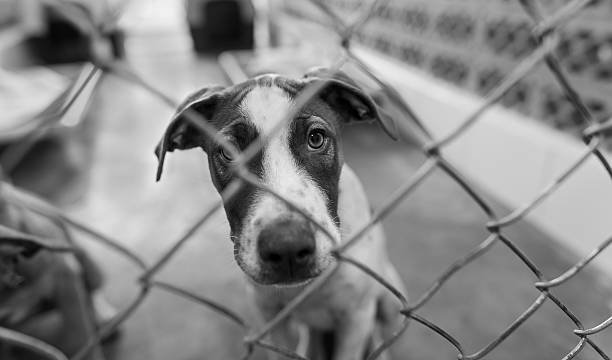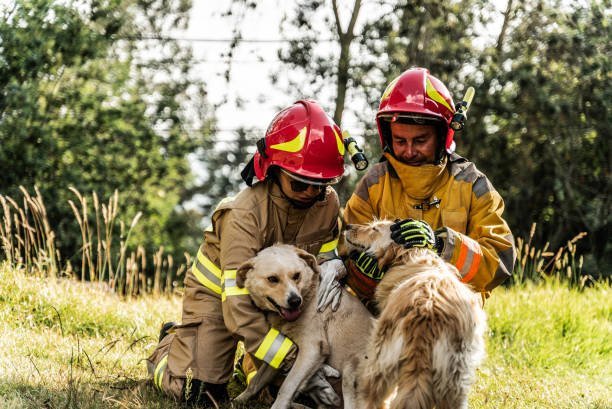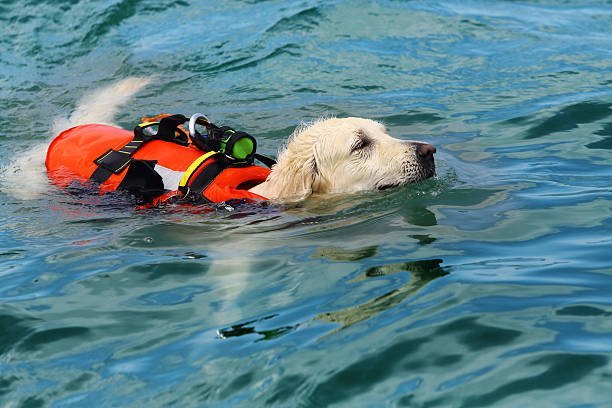Can dog rescue organizations help with behavioral issues?

Introduction:
In this article, we delve into a critical aspect of dog rescue organizations that often goes beyond the heartwarming narratives of saving dogs from dire circumstances: their role in addressing behavioral issues in rescued canines. While dog rescue organizations are primarily known for rescuing, rehabilitating, and rehoming dogs, they also play a significant role in understanding and mitigating behavioral challenges exhibited by these animals.
Rescued dogs often come from various backgrounds, including neglect, abuse, or abandonment, which can leave them with behavioral issues such as anxiety, aggression, fearfulness, or inadequate socialization. Addressing these issues is not only essential for the well-being of the dogs themselves but also crucial for successful adoptions and harmonious lifelong relationships with their new families. In this article, we will explore how dog rescue organizations work to assess, rehabilitate, and ultimately improve the behavior of rescued dogs, enabling them to find loving forever homes.
Behavioral Challenges in Rescued Dogs
Rescued dogs often exhibit a range of behavioral challenges due to their previous experiences, which can include neglect, abuse, or abandonment. These challenges can manifest as fearfulness, aggression, separation anxiety, inappropriate chewing or digging, and more. Addressing these issues is crucial not only for the well-being of the dogs but also for their successful integration into new homes.
Behavioral challenges can vary widely among rescued dogs, making it essential for dog rescue organizations to develop strategies and programs to help them overcome these obstacles. The understanding of the specific challenges each dog faces is the first step in the process of behavioral rehabilitation.
Assessment and Evaluation Process
The assessment and evaluation of rescued dogs’ behavior are fundamental to understanding their individual needs. Dog rescue organizations typically employ experienced trainers or behaviorists who can assess a dog’s temperament, triggers, and behavioral issues. This assessment often includes evaluating the dog’s reaction to various stimuli, interactions with people and other animals, and observing their responses to different situations.
Through this process, rescue organizations can create a comprehensive profile for each dog, identifying the underlying causes of their behavioral issues. This information forms the basis for tailoring rehabilitation programs to address specific problems, ensuring a more effective and targeted approach to behavioral improvement.
Behavioral Rehabilitation Programs
Dog rescue organizations employ a variety of behavioral rehabilitation programs to help rescued dogs overcome their challenges. These programs are designed to address specific issues and can include training sessions, socialization exercises, and exposure to various environments and stimuli.
Training sessions often focus on teaching basic commands, improving leash manners, and addressing issues like excessive barking or jumping. Socialization is critical, as it helps dogs become more comfortable around people and other animals. Exposure to different environments and experiences gradually desensitizes dogs to potential triggers, reducing fear and anxiety.
Moreover, behavioral rehabilitation programs may include therapy sessions, such as desensitization and counter-conditioning techniques for dogs with severe anxiety or aggression issues. These programs are typically tailored to the individual needs of each dog, with the goal of preparing them for successful adoption into loving homes.
Professional Training and Support
Dog rescue organizations often rely on professional trainers and behaviorists to provide expert guidance in addressing behavioral issues. These professionals have the knowledge and experience to develop customized training plans for rescued dogs. They work closely with the dogs to implement behavior modification techniques and teach them new, more desirable behaviors.
Professional support may involve one-on-one training sessions for dogs with severe issues, group training classes to improve socialization skills, and even specialized therapy for extreme cases of anxiety or aggression. These experts can also advise rescue staff and foster caregivers on how to continue the training process between sessions.
Veterinary professionals play a crucial role in addressing behavioral issues. Medical conditions can sometimes contribute to behavior problems, and veterinarians can diagnose and treat these issues, ensuring a holistic approach to rehabilitation.
Successful Adoption and Follow-Up
The ultimate goal of addressing behavioral issues in rescued dogs is to prepare them for successful adoption into loving homes. Dog rescue organizations invest time and effort into matching dogs with suitable adopters who have the skills and patience to continue the rehabilitation process.
Successful adoption involves thorough screening of potential adopters to ensure they are a good fit for the dog’s specific needs. This includes assessing their living situation, lifestyle, and experience with dogs. Once a dog is adopted, the support doesn’t end there. Many organizations offer post-adoption follow-up to provide ongoing guidance and assistance to new pet parents.
Follow-up support may include resources on training and behavior management, access to trainers or behaviorists, and a support network of experienced volunteers. This ongoing commitment to the welfare of the dogs ensures that they continue to receive the care and attention they need even after leaving the rescue organization.
The Ongoing Role of Dog Rescue Organizations
Dog rescue organizations have an ongoing role in ensuring the well-being of the dogs they rescue, even after successful adoptions. This includes maintaining a network of volunteers and professionals who can provide support to adopters as needed. It also involves monitoring the progress of dogs in their new homes and addressing any unforeseen behavioral challenges that may arise.
Some organizations go beyond adoption support by offering community education and outreach programs. These initiatives aim to educate the public about responsible pet ownership, proper training techniques, and the importance of adopting rescue organizations. By doing so, they contribute to the prevention of future behavioral issues in dogs.
Rescue organizations often advocate for policies and legislation that promote animal welfare and responsible pet ownership. They may collaborate with local authorities and other animal welfare organizations to address broader issues that affect dogs in their communities.
They enlist professional support, facilitate successful adoptions with ongoing follow-up, and maintain an ongoing commitment to the well-being of the dogs they rescue. Their work extends beyond individual cases to promote responsible pet ownership and advocate for policies that benefit all dogs in their communities.
Conclusion:
I hope this exploration of the role of dog rescue organizations in addressing behavioral issues has shed light on their invaluable efforts in rehabilitating and rehoming dogs in need. In conclusion, these organizations are pivotal in transforming the lives of rescued dogs by employing professional training, customized rehabilitation plans, and ongoing support.
By successfully addressing behavioral challenges, dog rescue organizations not only give dogs a second chance at a loving home but also enhance the well-being of adopters and communities. Their commitment extends beyond adoption, with post-adoption support ensuring the dogs’ continued progress and happiness in their new families.
Furthermore, the ongoing role of rescue organizations in education and advocacy contributes to the prevention of future behavioral issues in dogs and promotes responsible pet ownership. In essence, these organizations are not just saving individual dogs; they are making a lasting impact on the welfare of dogs and the communities they serve.










Post Comment